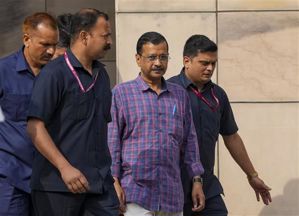Harpreet Kaur Vohra
Part novel, part travelogue, part journal and part memoir; Avalok Langer’s first book, In Pursuit of Conflict, explores the world beyond the Chicken’s Neck (the Siliguri corridor) and covers the author’s risky expeditions into the heartland of warlords and drug lords in Northeast India.
Ideologies often become family heirlooms and progeny groomed to perpetuate them; Avalok, too, is encumbered by unholy duty. Being the son of a Lieut-General, he straddles the weight of unquestioning faithfulness to ‘India’. So when Avalok undertakes his journey as ‘conflict journalist’, he not only has to appear sanitised of these tethers but also has to recalibrate those opinions he developed as an Army child.
The book, beginning with a ‘break-up’ with his Naga girlfriend vindicated as “clan compulsion,” propels Langer into trajectory while the love story is a mere entry point into India’s darkest kept secrets. The chapters spread over1,840 days zigzag over dirt tracks of Nagaland, Meghalaya, Manipur, Assam and Tripura. On these journeys, he meets several insurgent leaders, including Thuingaleng Muivah of the NSCN (IM) (National Socialist Council of Nagaland (Isak- Muivah)). Through these exchanges, Langer comprehends convoluted questions of Naga sovereignty, insurgency, the Indian state, drug cartels, extortion demands (read love letters), AFSPA (Armed Forces Special Powers Act) and parallel economies. The book begins with a list of 25 underground groups in the Northeast, reading like a glossary of literary terms.
Langer dedicates a sizeable portion of his book to the Naga insurgency; a festering wound caused by the proverbial fish bone lodged in the government’s gullet — the demand for sovereignty.
Through several meetings, Langer pieces history as he deciphers the Naga style of self-rule, their relationship with the colonisers and the ‘great betrayal’ by Jawaharlal Nehru. Thenoselie Keyho, former commander-in-chief of the Naga National Council (NNC), the first Naga ‘underground’ group, accused Nehru of proclaiming that Naga independence was unimaginable even if the “sky falls or blood runs red”.
It was soon evident that the Nagas were “misguided into believing that they could reclaim their sovereignty”. Keyho spoke glowingly of Gandhi who supported their demand for independence when he declared that India cannot bind anyone against their will — a fact Langer highlights by quoting Gandhi on the cover of his book.
Langer then travels to the drug cartels of Manipur and unearths liaisons between underground groups, drug trade and extortion. A major surprise is the complete indifference of the state government, owing to largesse received from these groups. The lavish lifestyles of these commanders also belie ideology and sacrifice!
Towards the end of the book, the AFSPA receives a hard relook with Avalok’s interpretation of this British law as one which turned the gun on its own people. He, however, endorses an opposite view too when he quotes a senior journalist, that in conflict zones everyone lies and the truth is somewhere in the middle of all versions.
Langer admits that he began his journey as an outsider when disallowed from marrying a Naga girl because of his non-Naga/ non- Christian background. He, however, soon becomes deeply entrenched, not merely in serious data compilation and dissemination, but also in developing a deep understanding of the innumerable conundrums of the area and yet never claiming to be an expert.
Langer is deftly able to present the problem of insurgency in several of the northeastern states through this travelogue. The travails faced by a conflict journalist in a hostile environment become evident even while Langer handles them with humour, often talking about his huge frame gawkily riding pillion on dangerous roads which hardly existed!
The book will appeal to those interested not just in this Shangri-La but also in India’s policy towards states and linguistic groups frequently demanding “independence”.
The role of China, Myanmar and Bangladesh in assisting such groups (established knowledge as old as the mountains!) can be of interest to geopolitical experts.
The strategic significance of the area, which shares its borders with six countries, is vital to the maintenance of peace in the subcontinent; a fact very few understand. Langer has been able to tell a heavy story with wit and banter, all the while maintaining tautness of the plot, and eventually proving that he is not a complete outsider after all.


























